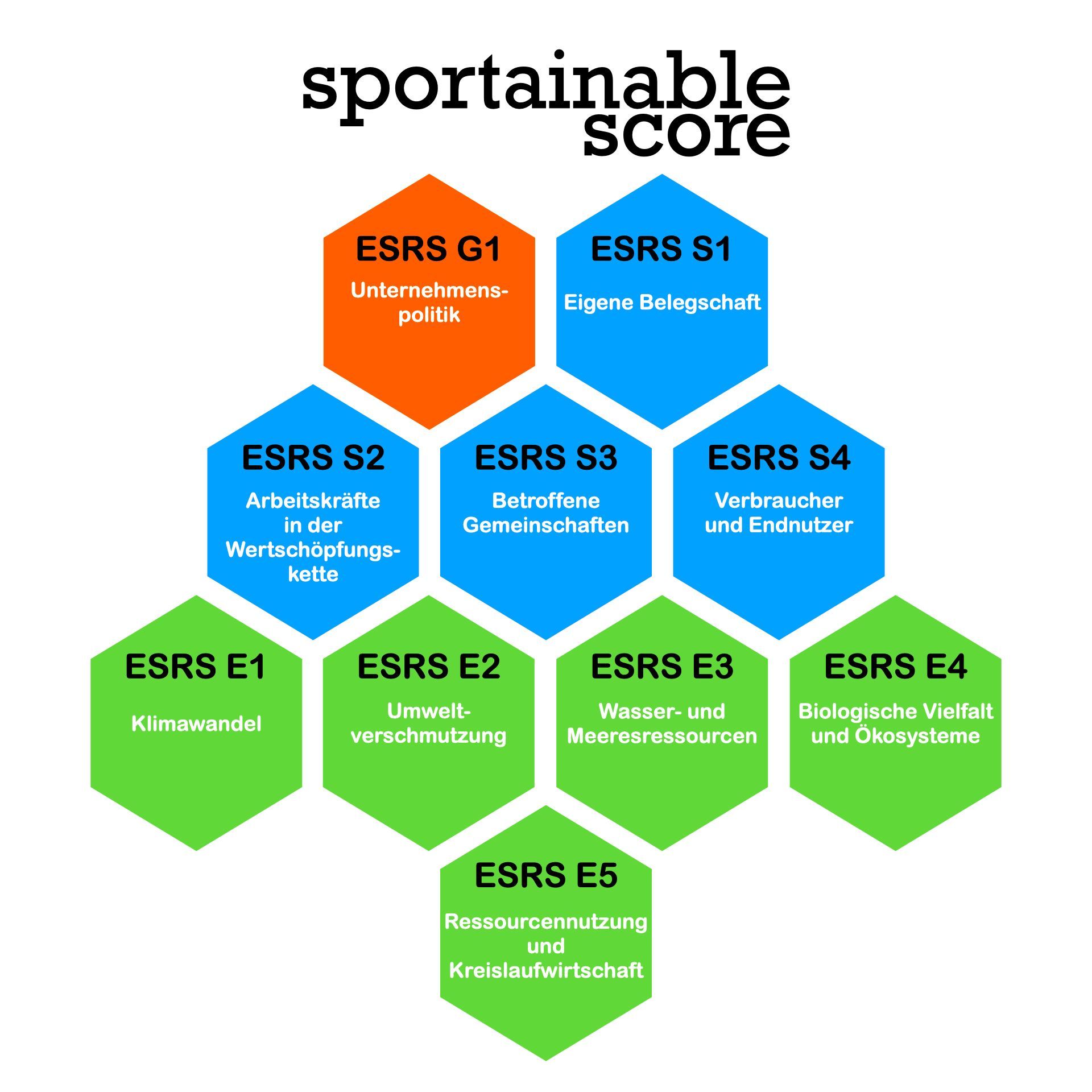sportainable®SCORE
Initiative: Peter Kuhn
Involved: Samana Anzinger, Isabel Beckstein, Carina Dangel, Jennifer Goldbrunner, Bernhard Grundl, Pia Häuslein, Alexander Hahn, Max Handke, Marko Hanke, Héloïse Hutter, Peter Kuhn, Marie-Kritin Lindner, Luisa Miller, Quirin Niederauer, Laura Opitz, Leon Rade, Veronika Radlinger, Julia Röttger, Florian Maximilian Schmidt-Holthausen, Schönfeld, Elena Schreiner, Mia Ströll, Lara Tapprich, Stella Tomm, Amrei Wagner, Simon Wittenzellner
Background: Demand for scientifically based assessment and transparent evaluation and communication of sustainability in sport; Corporate Sustainability Reporting Directive; European Sustainability Reporting Standards
Question: How can the sustainability of elements of sport - products, services, organizations - be assessed and communicated?
Objective: Assessing sustainability in sports and making it visible
Methods: Product and organization analysis, survey
Duration: from 2022
Funding: third-party funds
Partner: planetics, Sport-Thieme GmbH
Findings: Using a hermeneutic process, legal texts were interpreted and transformed into a list of questions. The resulting content was regularly reviewed in a weekly participatory group discussion and supplemented with an evaluation process. In a further methodological step, the questionnaire was checked for comprehensibility and accuracy in an internal pre-test. The result was the prototype of an evaluation tool that makes sustainability measurable and visible on the basis of the ESRS.
Conclusion: A differentiated and transparent score for evaluating and communicating the sustainability of elements of sport is feasible. We have developed functioning software. The graphic implementation in a communication medium is nearing completion.





























